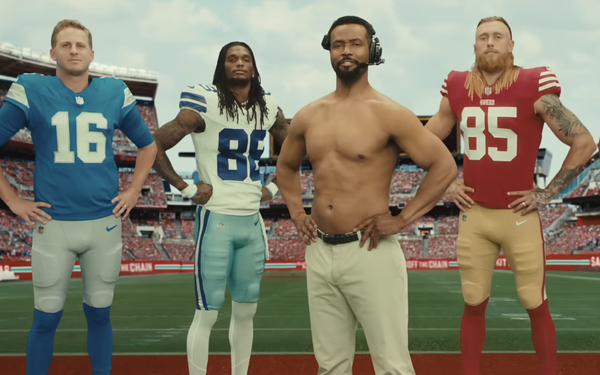
At the ANA Masters of Marketing conference — which promised to help marketers “face the future” — P&G’s Marc Pritchard spent much of
his talk looking backward, complete with a reel of vintage ads. But that, he said, is the point. Even if “now is complex,” said Pritchard, the company’s chief brand officer and
ANA chair, “it doesn’t need to be complicated.”
In a presentation called "Timeless Creativity," he walked through five lessons for building brands that last, which have been
tested by hundreds of P&G campaigns over the years, he said. And if the first two — know your consumer and know your brand — sound like Marketing 101, it’s worth noting that
they’re the rules so many brands ignore these days.
advertisement
advertisement
Lesson one: Know your consumer better than anyone. That means going beyond data to find
what Pritchard called the “human truth and emotion inside behavior.” Pampers, for instance, builds on parents’ primal need to protect and nurture, and the insight that
protecting sleep is critical for healthy development.
Lesson two: Know your brand better than anyone. “The fruits are in the roots,”
Pritchard said, urging marketers to study their brands’ early history. Charmin’s decades-long evolution from Mr. Whipple to the Charmin Bears, he said, proves that staying true to a core
idea — softness, in this case — can stretch across generations without losing its appeal.

Lesson three: Fall in love
with campaigns — and stay in love. Too many marketers, he said, pull the plug too early. “Repeated exposure isn’t fatigue,” he said. “It’s how ideas wear
in.” Old Spice, still growing after years, is currently having success with the comeback of Isaiah Mustafa as the Old Spice Man.
Lesson four: Build
memory. Advertising works, he said, because it literally encodes brand ideas “in the back of the brain.” Pantene’s viral “expired shampoo” TikTok/Alix Earle moment,
for example, reignited sales by taking the premise of a well-established brand campaign into the social media realm.
And finally: Build enduring creative
relationships. “The best creativity comes from the best relationships,” he said, crediting long-standing agency partnerships for ideas like “Like a Girl” and “Proud
Sponsor of Moms.”
Asked about AI, Pritchard called it “incredibly exciting,” but said it doesn’t change the fundamentals. “We
can move faster,” he said, “but creativity still starts with people.”